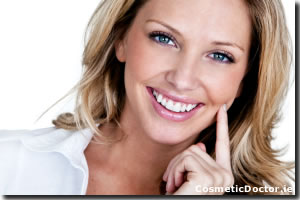Get Acne Help in Dublin
Acne symptoms can range from a few pimples and spots to large cysts, blackheads, whiteheads and even scarring. It is important not to underestimate the psychological effects of acne. Acne can cause embarrassment, low self esteem, social isolation and in severe cases depression. If you suffer from acne, do not despair.
There are a multitude of acne treatments on the market both with and without prescription. Below are an example of the most commonly used and effective acne treatment options.
Skincare advice
Using the correct skin care products can make a big difference to your acne because the wrong type of skincare can aggravate acne and result in breakouts. Products should be oil- free, water based and non-comedogenic. Gentle cleansers e.g. Cetaphil rather than soaps are recommended. Salicylic acid cleansers can help to reduce blackheads and whiteheads.
Mineral makeup is preferable to conventional makeup which can block pores leading to the development of blackheads and whiteheads. Examples of suitable foundations include Lycogel, Bare Minerals and Jane Iredale. Never leave makeup on over night.
1. Benzoyl Peroxide
Duac is a prescription strength medication which contains benzoyl peroxide and clindamycin. People with sensitive skin may feel slight tingling during the first few weeks of usage. Benzoyl peroxide may bleach hair or dyed clothing. In addition benzoyl peroxide products are photosensitising which means if you are going outside it is recommended that you use a sunscreen. Often it can take up to two months to see effects.
2. Topical Antibiotics
Clindamycin and erythromycin work by killing skin surface bacteria and are very effective in the treatment of mild pustular acne.
3. Retinol
3(a) Differin is a topical retinoid which works by exfoliating the skin to prevent acne. It has anti-inflammatory properties reducing spots and pimples. It is recommended to apply differin at night. However, it is important to apply differin as tolerated and gradually titrate the frequency of applications over a few weeks. This helps to reduce side effects such as dryness, redness and flaking. Differin is available as a cream or gel. Gels are best suited to oily skins whereas creams are better for drier or normal skin types.
3(b) Retin A is also a topical retinoid. Apply a pea sized amount to your entire face at night. Start sparingly and titrate upwards. Redness and flaking are common side effects, however these symptoms usually resolve 1-2 weeks after commencing treatment. If you have sensitive skin apply three times per week rather than every night and moisturise one hour prior to applying your retinoid.
4. Prescription Medication
Antibiotics e.g. Doxycycline, lymecycline and minocycline are recommended for cystic acne.
5. Contraceptive Pills
Yaz, a contraceptive pill has been approved by the FDA to treat moderately severe acne.
Yaz contains oestrogen (ethinyl estradiol) and progesterone (drosperenone). Yaz has anti androgen effects which makes it very effective in treating acne.
Dianette also has anti-androgen effects.
6. Peels
A study published in Dermatologic Surgery compared salicylic acid and glycolic acid peels for acne. Typically salicylic acid peels are better than glycolic acid peels. For best results a series of peels are necessary. Salicylic acid peels penetrate deeper into the sebaceous gland to reduce sebum and as a consequence inflammation.
7. Blue Light Therapy
Blue light therapy works by killing acne bacteria. Photodynamic therapy with ALA amino levulinic acid works by shrinking sebaceous glands.
8. Roaccutane
Roaccutane has anti-inflammatory action and reduces excess sebum or oil production.
If you have been prescribed Roccutane you will have to have monthly blood tests to check your liver function and cholesterol levels. Monthly pregnancy tests are mandatory in females.
Exciting new developments include Isolaz which works with broad band light with a vacuum suction device which can improve the appearance of acne.
Tips for Managing Acne.
- Never pick at your spots
- Never leave makeup on overnight
- Review your skincare products to ensure that they are non-comedogenic. The wrong type of skincare is often a trigger for acne.
- Book an appointment with a doctor with a special interest in acne. A doctor can prescribe either topical treatments or oral therapies as well as recommend skincare. This means you have a greater number of therapies at your disposal to fight the batter against acne.
If you suffer from acne and would like to know more, contact cosmeticdoctor a Slievemore clinic on 01 685 3100 to book a skincare consultation with our doctor.


